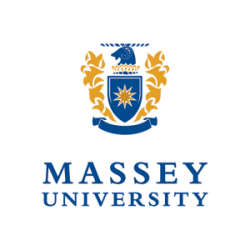
First Year Health Students using CD-ROM based Interactive Case Studies
Status
Completed: 6 November 2012
Project Details
A project, completed in 2012, to develop and trial two scenario-based interactive learning resources to gauge their effects on the learning of health science students at Massey University. A collaboration of Massey University and Charles Darwin University.
Aims:
The main aims of the project were to:
- develop a new scenario-based learning tool to encourage active student participation and learning in a health science paper at Massey University
- provide scenario-based resources to two cohorts of students for the topic of endocrinology.
Methodology:
The project methodology involved:
- a brief review of the literature
- two cohorts of students using newly developed scenario-based resources for the topic of endocrinology
- a student questionnaire asking them to comment on the effectiveness of the scenario-based resources in their learning
- analysing student preference and performance on the topic of endocrinology in their final examination.
The project sought to answer two key questions:
- Does the use of supplementary material presented as a scenario enhance student knowledge, understanding and performance in first year human bioscience students?
- Do students show a preference for this style of supplemental material?
Team

Jim Clarke
Project Leader
Massey University
Michelle McCulley
Massey University
Terry Stewart
Massey University
John Milne
Massey UniversityIsabelle Lys
Charles Darwin UniversityStatus
Funding
$10,000.00 (excl GST)
Key Findings
The key findings from the project included:
- An additional scenario resource was used as a supplement to a first-year human bioscience university course for inexperienced science students. The students using the scenario-based resource viewed it positively and it was seen as a useful aid to enhance their learning and understanding.
- The scenario resource appeared not to have influenced student preference and performance in their final examination. The number of students selecting the endocrine-based questions declined in both cohorts with one cohort also showing a decrease in performance and the other an increase in performance. However, the performance in the final examination could have been influenced by a number of significant uncontrollable variables.
- Whilst there is little doubt that the use of scenarios as a teaching tool enhances learning, careful consideration needs to be given to a number of factors before adopting the type of scenario-based resource used in this study to supplement the learning of endocrinology to inexperienced science students. These factors include, any additional learning resource requires the student to spend additional time on the resource when it is likely they are already using this time for other priorities and to complete assessments required to pass other courses.
- Developing a scenario-based resource is very time consuming. Other methods of teaching using scenarios and increasing participation by students in the use of those scenarios may want to be considered first.
Key Recommendations
The key recommendations from the project were:
Student considerations when introducing new tool | Scenarios became, for many students, very much an additional and optional resource. The number of students opting not to use the additional scenario-based learning resource clearly suggests that when a new learning tool is introduced as an additional resource careful consideration must be given to the number of other activities students may be involved in and where the use of this additional resource is likely to sit on the students list of priorities.
Links between enjoyment of learning methodologies and learning success | Performance apart, the use of scenario-based learning as an additional tool appears to be one that is favoured by most students using it. Enjoyment of use however, appears not to be linked to performance. In the same way, enjoyment of other teaching methodologies may also not be linked to performance. Further research needs to be undertaken to establish links between enjoyment of learning methodologies and learning success.
Methodology for future studies | Clearly, using the resource only once as was the case for half of those responding is not sufficient to enhance learning and success for an examination. To decide on the usefulness of the additional scenario resource using the measures selected, further cohorts could be studied and it is essential that a method of identifying scenario users and non-users for analysis of performance be employed. Future studies need to use a methodology that allows this discrimination.
A research report prepared by Jim Clarke, Michelle McCulley, Isabelle Lys, Terry Stewart and John Milne.
(PDF, 1.18 MB, 17-pages).
- 6 November 2012